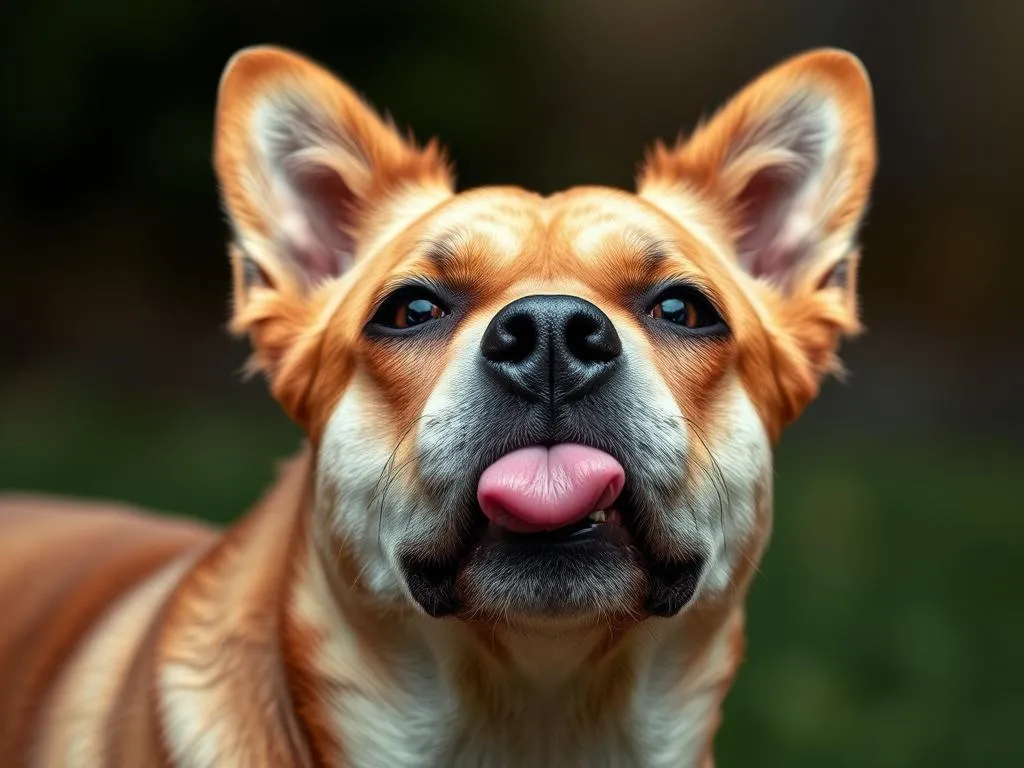
Introduction
As a dog owner, you might have found yourself wondering, why does my dog burp so much? It’s a common question, and understanding your dog’s behavior can significantly enhance your relationship with your furry friend. Burping in dogs is frequent, and while it can sometimes be amusing, it may also raise concerns about your dog’s health and diet.
This article aims to explore the reasons behind excessive burping in dogs and provide insights and solutions for dog owners. By understanding the mechanisms of canine digestion and the potential causes of burping, you can better cater to your dog’s dietary and emotional needs.
Understanding Dog Digestion
Basic Dog Anatomy
To grasp why dogs burp, it’s essential to have a basic understanding of their digestive system. Dogs have a simple gastrointestinal tract compared to humans. Their anatomy includes:
- Mouth: Where digestion begins with chewing.
- Esophagus: A muscular tube that transports food to the stomach.
- Stomach: Where food is mixed with digestive juices.
- Small intestine: Nutrient absorption occurs here.
- Large intestine: Water absorption and waste formation take place.
Unlike humans, dogs are not designed for prolonged chewing. They tend to gulp down their food, which can lead to excessive air swallowing—a primary reason for burping.
Normal Digestion Process
In a healthy dog, food moves through the digestive tract as follows:
- Ingestion: The dog eats food, which is chewed minimally.
- Swallowing: The food moves down the esophagus into the stomach.
- Digestion: The stomach mixes food with gastric juices, breaking it down for nutrient absorption in the small intestine.
- Elimination: Waste is processed in the large intestine and expelled.
Typical signs of healthy digestion include regular bowel movements, a healthy appetite, and minimal gas or burping. If your dog is burping excessively, it might indicate an underlying issue.
Reasons Why Dogs Burp
Normal Reasons for Burping
Burping is a natural behavior in dogs, particularly after meals. Common reasons for normal burping include:
- Swallowing air while eating or drinking: Dogs often gulp down their food and water, leading to air being trapped in their stomachs, which must be released.
- Occasional burping as a natural behavior: Like humans, dogs occasionally burp after eating or drinking, especially if they have consumed their meals quickly.
Dietary Factors
The type of food your dog consumes plays a significant role in how much they burp.
- Dry kibble vs. wet food: Dry kibble tends to produce more gas than wet food, especially if your dog is prone to gulping their meals.
- Feeding habits: Fast eaters often swallow more air, resulting in increased burping. Conversely, slow eaters may experience fewer burps.
- Inappropriate foods that cause gas: Certain foods, such as beans, broccoli, and dairy products, can lead to excessive gas and burping. It’s crucial to monitor your dog’s diet to identify any potential triggers.
Health-Related Issues
Gastrointestinal Disorders
If your dog is burping excessively, it could be a sign of gastrointestinal disorders:
- Bloat: A serious condition where the stomach fills with gas, causing it to distend. Symptoms include restlessness, a swollen abdomen, and excessive burping. Bloat requires immediate veterinary attention.
- Gastritis: Inflammation of the stomach lining can lead to burping. Other symptoms include vomiting, diarrhea, and abdominal pain.
Food Intolerances and Allergies
Food intolerances and allergies can also cause excessive burping. Common allergens in dog food include:
- Grains: Wheat, corn, and soy can cause digestive issues in some dogs.
- Proteins: Beef, chicken, and dairy are common allergens.
Identifying food intolerances typically involves observing your dog’s reaction to certain foods. If you notice changes in their behavior or digestion after introducing new food, it may be time to consult a veterinarian.
Behavioral Reasons
Burping can also be linked to your dog’s emotional state:
- Anxiety and stress: Dogs that experience anxiety may swallow air, leading to excessive burping. Changes in routine, environment, or the presence of new pets or people can trigger anxiety.
- Changes in routine impacting digestion: A sudden change in feeding times or types of food can disrupt a dog’s digestive pattern, resulting in increased burping.
When to Be Concerned
Signs of Problematic Burping
While occasional burping is normal, it’s essential to recognize when it becomes problematic. Signs to watch for include:
- Frequency and severity of burping: If your dog’s burping becomes frequent or seems uncomfortable, it may indicate an issue.
- Accompanying symptoms: Look out for additional signs such as vomiting, lethargy, loss of appetite, or diarrhea. These symptoms may indicate an underlying health problem that requires veterinary attention.
Seeking Veterinary Advice
If you’re concerned about your dog’s burping, consulting a veterinarian is advisable. They may perform diagnostic tests to rule out health issues, such as X-rays or ultrasounds, to examine the gastrointestinal tract.
Prevention and Solutions
Dietary Adjustments
Making informed dietary choices can significantly reduce burping in dogs. Here are some recommendations:
- Recommended types of dog food for reducing burping: Opt for high-quality, easily digestible dog food that minimizes gas production. Look for brands that list meat as the first ingredient and avoid those with fillers like corn and soy.
- Feeding strategies to minimize air intake:
- Slow feeder bowls: These bowls are designed to slow down fast eaters, allowing them to enjoy their meals while reducing air intake.
- Smaller, more frequent meals: Rather than serving one large meal, divide your dog’s daily food into smaller portions. This approach can help prevent excessive burping and promote better digestion.
Behavioral Modifications
Creating a calm eating environment can help reduce anxiety and improve your dog’s digestion. Here are some tips:
- Reducing anxiety and stress in dogs: Engage in regular playtime, provide a comfortable space, and consider using calming products like anxiety wraps or pheromone diffusers.
- Creating a calm eating environment: Ensure your dog has a quiet place to eat, free from distractions and disturbances.
Regular Vet Check-ups
Routine veterinary visits are essential for monitoring your dog’s health. Regular check-ups can help catch any underlying issues before they become serious, ensuring your dog maintains a healthy digestive system.
Conclusion
In summary, understanding why does my dog burp so much can help you address potential issues related to their health and diet. From normal burping due to air swallowing to more serious health concerns, burping can be a complex issue for dog owners.
By observing your dog’s behavior, making dietary adjustments, and seeking veterinary advice when necessary, you can help maintain a healthy digestive system for your furry friend. Remember, a happy and healthy dog is a well-cared-for dog, so keep an eye on their dietary habits and emotional well-being to ensure they thrive.
FAQs
Common Questions About Dog Burping
- Is burping normal for dogs?
-
Yes, occasional burping is normal for dogs, especially after eating or drinking.
-
How can I reduce my dog’s burping?
-
Feed smaller meals, use slow feeder bowls, and choose high-quality dog food to minimize excessive burping.
-
When should I be concerned about my dog’s burping?
-
If burping is frequent, severe, or accompanied by other symptoms like vomiting or lethargy, consult a veterinarian.
-
Can certain foods cause more burping in dogs?
-
Yes, some foods, especially those that are hard to digest or high in grain, can lead to increased gas and burping.
-
How do I know if my dog has a food intolerance?
- Monitor your dog’s behavior and digestion after introducing new foods. Consult a vet if you notice adverse reactions.









